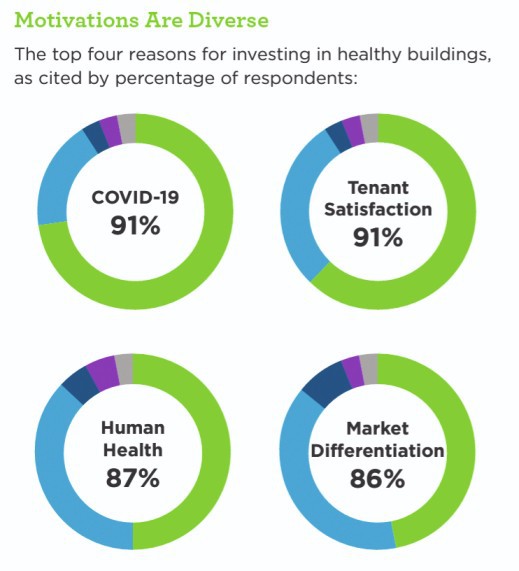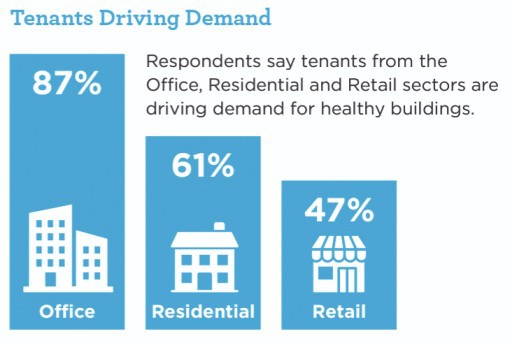Advertorial - In the absence of the Covid-induced panic, what is the more permanent business case for providing good indoor air quality?

In 2020-2021 it was hard to turn a corner without bumping into a freshly ‘qualified’ indoor air quality expert with a magic box supposedly ready to solve all your air quality problems. Customers were willing to listen at the time, even if they didn’t quite get their wallet out.
Since 2022, it's been a tough time trying to promote anything that is not focussed on net zero. With the sudden increase in energy costs triggered by the Russian invasion of Ukraine, building operators who were reluctant to address their climate change obligations, suddenly had unsavoury energy bills to highlight inefficient HVAC systems.
Since then, the focus of facility managers and building designers has primarily been on reducing carbon emissions. Because of this focus, there are fewer people willing to listen about solutions for improving indoor air quality. But they should.
There are always multiple stakeholders involved in any purchasing decision, all with different priorities.
- Developer: Could I rent out/sell my property for more money if it has good indoor air quality?
An AirRated survey recently found that occupier decision makers would spend on average an 18% premium on commercial space that had a healthy building certification.
- Building owner: Will my building remain compliant in future if I deliver today's bare minimum?
Landlords currently rushing to upgrade their buildings to meet EPC B by 2030 is a prime example of this, the same may be the case for air quality in the future. - Chief Revenue Officer: Will improving the air quality in my office make my staff more productive?
A 2015 study found that elevated levels of CO2 can cause up to 11% reduction in productivity, 23% impairment in decision making and 299% reduction in information usage.
- CEO - Does having a healthy building for my employees demonstrate our commitment to ESG, and does that highlight to our customers that we are a good company to deal with?
The global Real Estate Sustainability Benchmark (GRESB) gives credit for healthy building standards such as AirScore. ESG is an increasingly important consideration for investors.
- Human resources: Are we less likely to have staff absences if we have good indoor air quality?
A report from the Confederation of British Industry (CBI) in 2020 found that work absences related to poor air quality cost Britain £600million a year.
- Employee: Am I more likely to accept a job in a healthy building?
The latest AirRated survey found that 60% of Americans stated that the health of the building was their most important priority.
Data suggests that there is a clear financial benefit to providing good indoor quality. The demand for healthy buildings pre-dates Covid. Indeed 68.4% of respondents to the AirRated survey saw rising demand before the pandemic. So what is holding back decision makers?

There has been some confusing advice and there is no ‘one box fixes all’.
HEPA purifiers were given the backing of the Scientific Advisory Group for Emergencies (SAGE) during the pandemic. Their own subsequent £1.85million trial of portable HEPA purifiers in Bradford schools only cut sick days by 20%. Ahead of those results being made available, the building regulations have been updated to require HEPA filtration to be fitted to recirculating office ventilation systems. This has left consumers confused as to who to listen to.
The commercial office market was where most IAQ custom was seen during the pandemic, with building owners and employers keen to see a return to the office. This sector had historically seen the most demand for healthy buildings pre-Covid. Office occupancy rates are still down at 35%, the current lull in this significant sector is not reflective of the overall IAQ market.
Following an initial, significant decline, the indoor air quality market declines no longer. But we will not see a return to 2021 business levels for some years.
An increasing level of enquiries we see for air quality surveys demonstrate that the heightened awareness of air quality still exists compared to pre-pandemic, but both the assessment and appropriate remediation are likely to be bespoke to the building.
+44 (0)1722 710312
info@spirebuildingservices.co.uk







